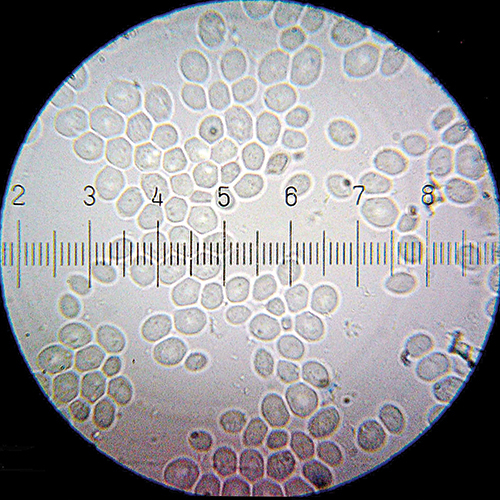Beer is totally awesome. There is no contrary position. Aside from providing much-needed refreshment and readily digestible carbohydrates, there ain’t nothing better to go with your Humboldt Fog cheese course and moules-frites entree. We needn’t mention the sweet elixir’s well-attested power to reduce anxiety, promote feelings of contentment and well-being and make your person more attractive to the opposite sex.Or the same sex, if you prefer. Beer is a famously inclusive and egalitarian adult beverage.
The Great Official Oregon State Microbe Debate of 2013

Beer is totally awesome.
There is no contrary position. Aside from providing much-needed refreshment and readily digestible carbohydrates, there ain’t nothing better to go with your Humboldt Fog cheese course and moules-frites entree. We needn’t mention the sweet elixir’s well-attested power to reduce anxiety, promote feelings of contentment and well-being and make your person more attractive to the opposite sex.Or the same sex, if you prefer. Beer is a famously inclusive and egalitarian adult beverage.
Clear practical benefits notwithstanding, beer should be celebrated for the tremendous contributions it’s made to human society. Lacking a supply of clean, fresh water, English dissenters making the perilous North Atlantic sea voyage aboard the Mayflower in 1620 relied on the hydrating powers of beer. The whole of Irish literature—with its
baby-eating and epiphanic-moment-reaching and waiting for a God who never shows up—would have been impossible without the stout’s soothing palliative.
And who can forget that greatest artifact of decadent fin de siecle American culture, the Anheuser-Busch “Wassup?” television campaign of 1999?
Indeed, the secret bacchanalian rites of ancient Greece attest to the extent to which our celebrated human cultural institutions of drama, literature and religion are indebted to alcohol-induced delirium.
I mean, seriously, guys—a benevolent, omnipotent Creator?
But beer is more than just comestible and muse. In fact, there’s strong evidence to suggest that brewing is fundamental to human society. Unlike other grain preparations like bread and gruel, beer has the distinct survival advantage of keeping for months on end. Late-Neolithic hunter-gatherers may have adopted a sedentary, urban lifestyle in order to secure the complex division of labor necessary to produce the stuff.
You could say that beer is the very stuff of civilization. This columnist would sooner stuff his trousers with Dungeness crabs than forswear India pale ale.
It is therefore with great pleasure that he greeted last week’s announcement by the Oregon House of Representatives that they’d passed a bill designating Saccharomyces
cerevisiae (better known as brewer’s yeast) the official state microbe.
This sugar-munching microscopic life form is responsible for the fermentation reaction that turns an unappealing mash of boiled grains into sweet alcoholic nectar. Rep. Mark Johnson of Hood River championed the bill as a fitting tribute to the tiny organism that’s made possible the state’s international preeminence as a major center of the craft brew industry. There’s a lot of money riding on the little bugger.
S. cerevisiae is pretty nifty for a single-celled organism. Besides beer, it’s commonly used in baking, viticulture and home aquaria. The English even make it into a disgusting, gym-sock-flavored toast spread called Marmite.
And owing to its rapid rate of reproduction and genetic malleability, S. cerevisiae is one of the microorganisms most commonly used in biological research. In fact brewer’s yeast was one of the first life forms to have its genome sequenced in its entirety.
The Oregon House made a good choice in singling out S. cerevisiae. But is it really the king of all microbes?
Three words: human gut flora.
If civilization would be a moot point without brewer’s yeast, human life as we know it wouldn’t exist without the 100-trillion-odd bacteria and other intestinal hangers-on that line the digestive tract of the average Joe-on-the-street Oregonian. Not counting a few bad apples that have been linked to the development of cancer, these microorganisms have a uniformly positive impact on human life.
Gut flora like those of the genus bacteroides are key players in human digestion, helping to break down bits of grass-fed burger, non-GMO french fry and organic blueberry milkshake into the simple sugars you need to get up off your ass and walk to the corner store for a six-pack.
Catch that? No bacteria in your colon, no beer in your belly.
Gut flora are thus higher than brewer’s yeast in the hierarchy of socially useful microbes. They help with digestion, but they’ve also been linked to the production of beneficial vitamins and hormones. Your body can limp along fine without alcohol, but get rid of intestinal bacteria—say, by pumping your system full of antibiotics—and a host of negative effects like obesity and inflammatory bowel disease may ensue.
Not to mention diarrhea.
Fancy watery stools? Not this columnist! He therefore recommends that Gov. Kitzhaber send the bill back to the House so that it may be amended to name one of the multitudinous denizens of the human digestive tract Oregon’s official state microbe.






